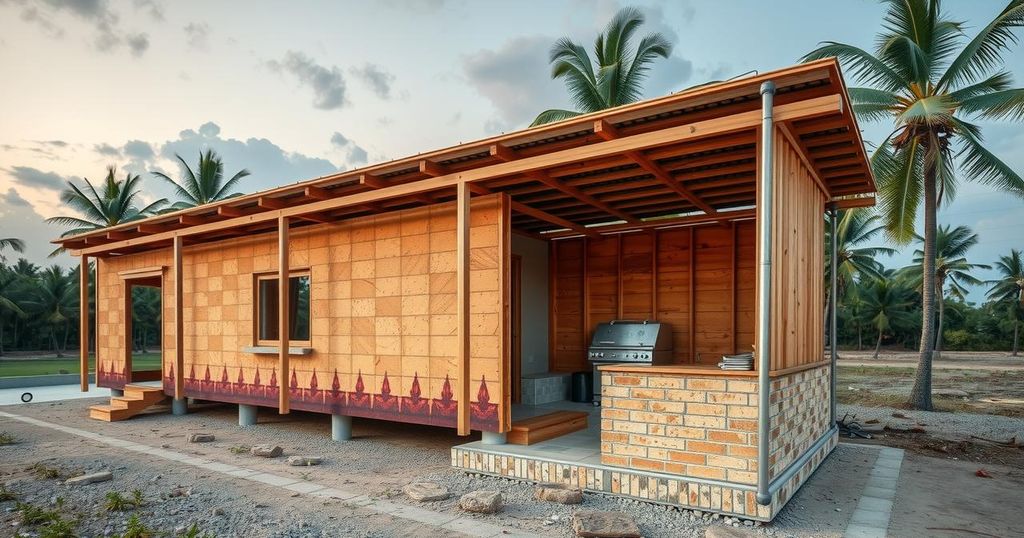Mozambique Advances Shelter Construction for Cyclone Chido Victims
Mozambique has initiated the construction of shelters for victims of Cyclone Chido, which caused fatalities and substantial destruction in northern regions. Minister Silvino Moreno emphasized the need for resilient materials in housing, as previous structures were easily damaged. With expectations of more storms, the focus on community preparedness and international aid is paramount to address the humanitarian impact, including thousands of destroyed homes and health facilities.
This week, Mozambique commenced the construction of shelters for those affected by Cyclone Chido, which inflicted severe damage across three northern regions of the country last Sunday. The cyclone resulted in at least 70 fatalities and left 600 individuals injured as it devastated the landscape. In a statement made during a visit to the impacted areas, Minister of Trade and Industry Silvino Moreno indicated that the government is actively engaged in providing assistance to the victims, with support from international partners.
Minister Moreno emphasized the importance of utilizing resilient materials in the new construction, stating the objective is to prevent a recurrence of damage caused by inferior building materials. Many homes in the affected regions were built using mud and reeds, which provided little resistance against the cyclone’s force. He also noted the necessity for enhanced training in construction practices for the local population.
Prior to making landfall in Mozambique, Cyclone Chido had already caused devastating effects in Mayotte, a group of French islands, leading to loss of life and significant damage to infrastructure. In southern Malawi, the cyclone also produced damaging winds and precipitation, contributing to the destruction of homes and essential facilities.
The meteorological agency of Mozambique has signaled the possibility of additional storms in the coming three months of the rainy season, urging communities to improve their preparedness strategies. UNICEF has reported that approximately 174,000 individuals have been adversely impacted by the cyclone, stating that this figure may rise as further assessments are conducted. In addition to the destruction of homes, the cyclone has damaged thousands of classrooms and multiple health facilities.
Michael Chimedza, the head of UNICEF’s provincial office in Zambezia, noted that the organization has requisitioned supplies to quickly assist 50,000 individuals, alongside allocating funds for local response training. Cyclone Chido also severely affected Nampula, Cabo Delgado, and Niassa provinces, which left over 25,000 families without electricity and resulted in damage to critical infrastructure, including health units, roads, and water sources. In a region already grappling with a cholera outbreak, the recent calamity raises concerns about further exacerbation of the situation according to humanitarian organizations.
Cyclone Chido struck Mozambique, causing extensive destruction across multiple regions. The storm highlighted the vulnerability of local infrastructure and emphasized a critical need for improved construction practices and preparedness in response to natural disasters. Previous weather events had already put a strain on communities, and the cyclone’s impact was compounded by existing health crises like cholera, further stressing the emergency response capabilities within the country.
In conclusion, the devastation inflicted by Cyclone Chido has prompted urgent construction efforts to rebuild homes for affected individuals. The government’s commitment to using more resilient materials reflects an understanding of the critical need for better building practices. Furthermore, as the nation braces for more storms, the focus on improving local response capabilities is essential to mitigating future damages and enhancing community resilience. Continued support from international agencies will be crucial in addressing the ongoing humanitarian needs in Mozambique.
Original Source: www.voanews.com




Post Comment